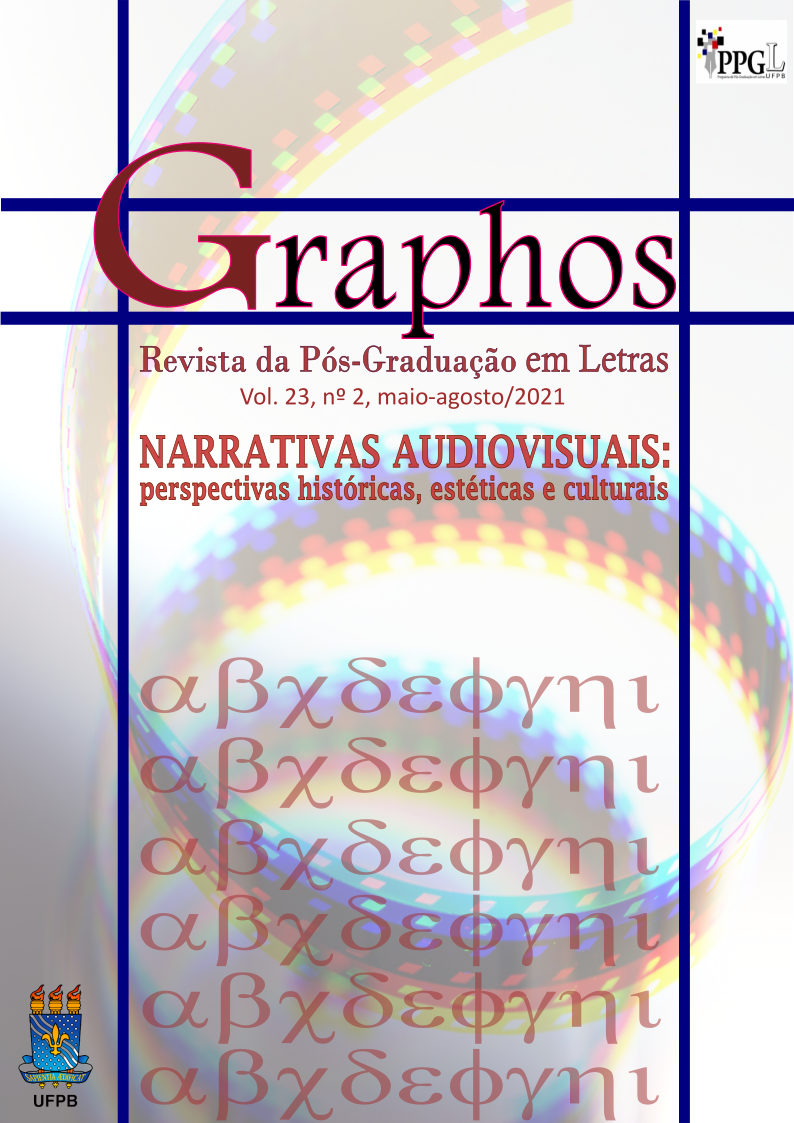A museum of cangaceiros, blundrebuss shooters, and coiteiros: some considerations on the space narrrative category in Bacurau
DOI:
https://doi.org/10.22478/ufpb.1516-1536.2021v23n2.59053Keywords:
Space, Folk Culture, Resistance, Brazilian Cinema, BacurauAbstract
This paper aims at evaluating the space narrative category in Bacurau – a film by Kleber Mendonça Filho and Juliano Dornelles –, gathering contributions from the literary field and focusing on cinematographic analysis of some scenes and sequences. It seeks to demonstrate how the cinematographic discourse of Bacurau, through intertextual relations with western films, construes “Museu Histórico de Bacurau” as a central space element to define strategies to defeat the enemy and as the axis that articulates the community fight against the foreign invader – representing globalization – with folk culture identity parameters, in which cangaço emblems, coiteiros’ tradition and blunderbuss shooters’ merrymakings are displayed. The paper also shows how the tensioning generated from the clash between present and past makes way for, from on one hand, the resistance in defense of tradition, space and property, and, on the other hand, domination motivated by the cold pragmatism of a cruel, brutalizing exterminating society. In this clash, “Museu Histórico de Bacurau” is precisely the space axis which articulates physical fight resistance with collective identity parameters. Finally, the paper analyses the fundamental semantic implications of the museum as a (social-political) cultural space: a symbol in which tradition and past are “updated” in the film futuristic fiction, as a powerful source of community identification.
Downloads
References
BONALD NETO, Olímpio. Bacamarte, pólvora e povo. Recife: Bagaço, 2004.
CASCUDO, Luís da Câmara. Dicionário do folclore brasileiro. Rio de Janeiro: INL, 1954.
DELEUZE, Gilles. A imagem-tempo. São Paulo: Brasiliense, 2013.
MARTIN, Marcel. A linguagem cinematográfica. São Paulo: Brasiliense, 2007.
MATTOS, A. C. Gomes. Publique-se a lenda: a história do western. Rio de Janeiro: Rocco, 2004.
MOLICA, Fernando; MOTTA, Bruna. Kleber Mendonça Filho: “Não fiz um panfleto”. Entrevistado: Kleber Mendonça Filho. Veja, São Paulo, ed. 2654, 2 out. 2019. Disponível em: https://veja.abril.com.br/entretenimento/kleber-mendonca-filho-bacurau/. Acesso em: 11 nov. 2019.
NASCIMENTO, José Anderson. Cangaceiros, coiteiros e volantes. São Paulo: Ícone, 1994.
OLIVEIRA, Bismarck M. de. O padre e o cangaceiro: a última passagem de Antônio Silvino por Pocinhos – PB. João Pessoa: Mídia Gráfica, 2019.
OLIVEIRA, Joana. Em ‘Bacurau’, é lutar ou morrer no sertão que espelha o Brasil. El País, 21 ago. 2019. Disponível em: https://brasil.elpais.com/brasil/2019/08/20/cultura/1566328403_365611.html. Acesso em: 25 set. 2019.
PELLEGRINI, Tânia. Despropósitos: estudos de ficção brasileira contemporânea. São Paulo: Annablume: Fapesp, 2008.
PELLEGRINI, Tânia. Realismo e realidade na literatura: um modo de ver o Brasil. São Paulo: Alameda, 2018.
REIS, Carlos. Dicionário de Estudos Narrativos. Coimbra: Almedina, 2018.
SANTINI, Juliana. Ocupação dos espaços: sobre Maria Valéria Rezende e o coletivo Mariposa Cartonera. In: DALCASTAGNÉ, Regina; LICARÃO, Bertoni; NAKAGOME, Patrícia (org.). Literatura e resistência. Porto Alegre: Zouk, 2018. p. 53-69.
SCHOLLHAMMER, Karl Erik. Ficção brasileira contemporânea. Rio de Janeiro: Civilização Brasileira, 2009.
TOLENTINO, Célia Aparecida Ferreira. O rural no cinema brasileiro. São Paulo: Unesp, 2001.
Downloads
Published
Issue
Section
License
Copyright (c) 2021 MARCELO BULHÕES, Ricardo Bulhões, Roque Nunes da Cunha

This work is licensed under a Creative Commons Attribution 4.0 International License.







